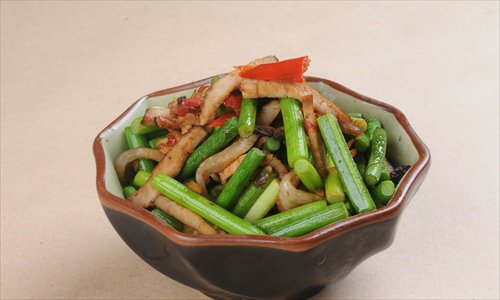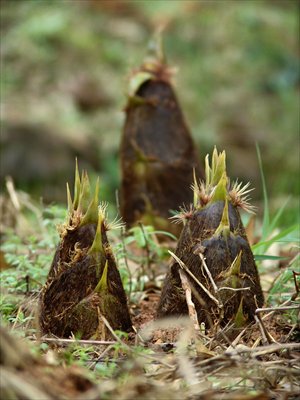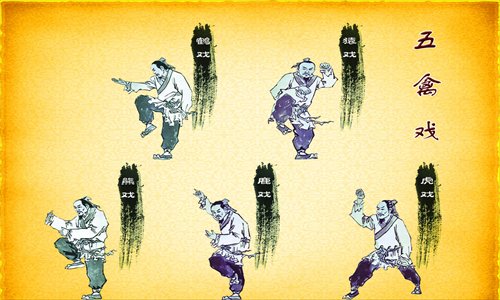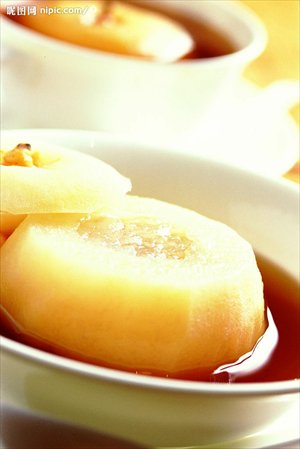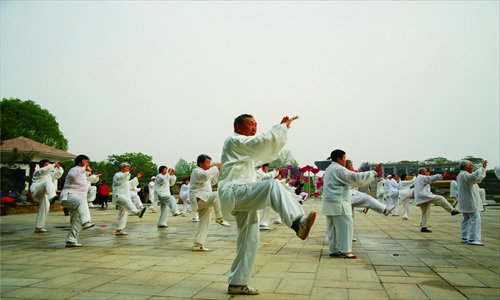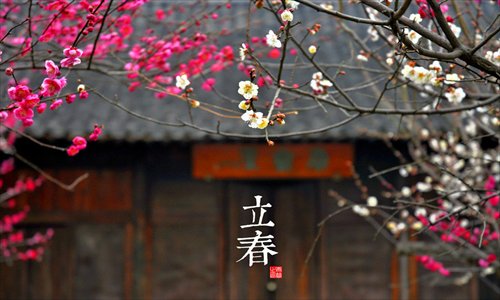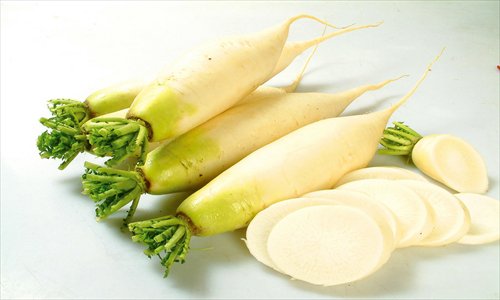Feeling the heat
The increasing rains and changeable temperature see the arrival of xiaoman (meaning “lesser fullness of grain”), the second solar term in summer, which this year is from May 21 to June 5. During this kind of weather, the key to maintaining good health during xiaoman lies in dehumidification and prevention of skin disease.
Bumper crop
Xiaoman, or “lesser fullness of grain,” is the eighth solar term of the year, and the second of summer. It is the time when grains harvested in summer, such as wheat, reach maturity. This year, it lasts from May 21 to June 4.
Taking it easy
With the city’s weather forecasters stating summer won’t be declared until the average temperature reaches 22 C for five consecutive days, it appears we might have a while to go yet before we officially enter summer. But the latest period of the traditional Chinese agricultural solar system has already begun.
Build up to health
This past Sunday marked the beginning of lixia, (literally “build up to summer”) the seventh period in the traditional Chinese agricultural solar system. The term, which usually starts on May 5 or 6, heralds the arrival of summer when hot weather becomes the norm. It is also a time when crops grow faster, and more rains and thunderstorms are expected in the south of China.
Running hot and cold
As the sixth solar period of the year and also the last in spring, guyu started on April 20, and we finally wave goodbye to the chilly weather and officially, at least, march on to summer. However, the temperatures are still unpredictable, making it difficult for people to decide exactly what to wear before they leave the house every morning. According to the precepts of traditional Chinese medicine (TCM), people still need to wrap up well in the morning and at night during this period.
Go with the grain
Guyu, literally meaning “grain rain,” is the sixth solar term of the year and last solar term of spring, and this year it begins on April 20. It is commonly said that guyu indicates the end of any cold snaps and the gradual warming of temperatures.
Grave health matters
Known as Tomb-sweeping Day, Qingming Festival usually arrives with drizzle and damp weather to match people’s moods at this somber time. Literally meaning “clean and clear” in Chinese, qingming usually falls around April 5, or the 15th day after the spring equinox. We explore the ancient traditions around ancestor veneration, as well as offering tips on how to stay healthy – especially at a time when the H7N9 bird flu virus is sweeping through Southeast China.
A festive feast
As this weekly column about solar terms approaches the end of a full cycle, we finally reach the only period among the 24 terms that is celebrated as a festival: qingming. The period – which always starts between April 4 and 6 – starts on April 4 this year. In ancient China, this was a time in which important agricultural decisions were made, but today qingming is better-known for the traditions of tomb-sweeping, ancestor worship, and spring outings.
A head start on spring
The ancient Chinese created an agricultural solar system – still in use today – that is based upon their observation of crops, climate, astrology, and the study of animal and plant life cycles. The system guided farmers as to when to sow seeds and when to harvest them, and this system has now been in place for more than 2,000 years.
A balancing act
As cold gives way to warmth, recipes to stay in peak condition
Climate-change customs
Jingzhe, the third solar term in the traditional Chinese agricultural solar system, is probably the “loudest” of all the 24 solar terms. The word, jing, is a verb, meaning to awake or to startle; while zhe, a noun, refers to hibernating animals. According to traditional Chinese farming culture, after entering jingzhe,
Recipes to wake up to
Jingzhe, meaning “the awakening of hibernating animals by thunder and warm temperatures,” is the third period in the Chinese agricultural solar system. It falls on March 5 this year, and signals that there will be more rain and rising temperatures.
Every breath you take
According to the traditional Chinese calendar, yushui, or “the rains,” is the second solar period of the year. Yushui always starts on either February 18 or 19, beginning when the sun reaches a celestial longitude of 330 degrees, and it lasts until March 4 or 5, when the sun reaches the longitude of 345 degrees.
Here comes the rain again
Hao yu zhi shijie, dang chun nai fa sheng is a line by the famous poet Du Fu who lived during the Tang Dynasty (618–907) and reveals his happy feelings at seeing the spring rains falling and nourishing the plants.
A bite of spring
In the Chinese solar calendar, lichun, which literally means “build up to spring,” is the first of the 24 periods of the solar year. It takes place on February 4 this year.
Liver, and let live
In China, the first solar term of spring, and also of the new lunar year, is called lichun, (literally means “building up to spring”) and it falls around February 4 every year. This day is always regarded as important in China as spring is thought to be the most vibrant time of the whole year because it signals birth and rebirth. Therefore, during lichun, people often hold certain ceremonies and events which involve prayers for a prosperous coming year.
In from the cold
“Although over the past weekend Shanghai has experienced warm temperatures, in contrast to the freezing chills of late, dahan (great cold), together with xiaohan (slight cold), is still generally considered as one of the coldest periods of the year,” Xu Liang, a doctor from the Shanghai Traditional Chinese Medicine Hospital told the Global Times.
A time for feasting
This Sunday will mark the beginning of the last of the 24 solar periods, dahan, which literally means “great cold.”

